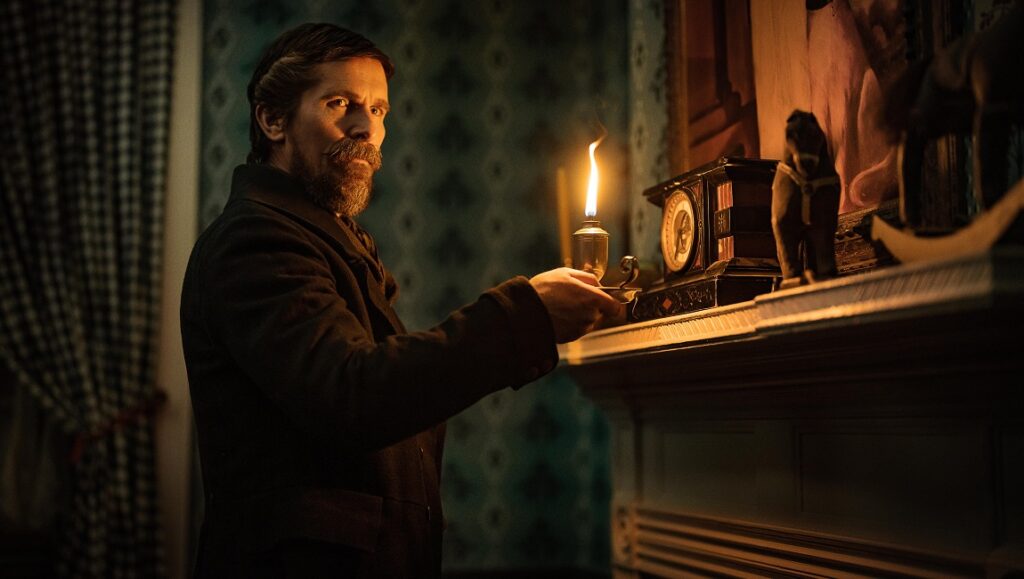Based on Louis Bayard’s 2003 novel, Scott Cooper’s painfully dull The Pale Blue Eye imagines a fictional murder mystery featuring one Edgar Allan Poe (Harry Melling) assisting alleged master detective Augustus Landor (Christian Bale) in sleuthing around West Point (which Poe actually did attend). Someone’s strung up a cadet and cut out his heart, and for some reason Landor settles on Poe as someone who can help him navigate the ins and outs of both the Academy and the local gentry, while the famous author finds both fuel for his writing and a pretty girl in the course of the case.
It’s an ostensibly intriguing idea to give us a moody, atmospheric mystery as the inspiration for some of fiction’s most famous works, but the film that Cooper delivers is instead inert, suspense-free, and so emotionally remote as to render any attempts at complexity or ambiguity completely unnoticeable. Even more puzzling is that the story would appear to have little to no bearing on Poe’s work at all; even though Melling is sufficiently convincing as a melancholic weirdo, one could swap Poe out here for literally anyone else, famous or not, and The Pale Blue Eye would remain the exact same film. Sure, there might be a few easter eggs to be found and some references to remind of Poe’s famous stories and poems, but they don’t enhance the story or add any layers of cleverness or nuance to the bland proceedings.
The mystery itself is both sluggish and fairly rote, even if it does revolve around heart removal and privileged secret societies that bloom into cults. Poe and Landor barely do any actual investigating, as most of the important clues, like a crucial journal or a crumpled note, for instance, simply fall into their laps. Meanwhile, the culprits — at least in the initial murder — are pretty readily identifiable. You can only feature so many portentous bits of dialogue and clandestine shifty-eyed close-ups before one begins to tire of taking the hint. And that’s all doubly bizarre since the whole film is building to a ridiculous rug-pull ending that most viewers probably won’t see coming simply because it’s wildly illogical and narratively arbitrary, retroactively turning what started as a placid literary procedural into one of Cooper’s patented mopey revenge flicks.
Indeed, the director’s usual brooding is as present as ever, but in truth it barely registers over the whispery performances and the grayed-out color palette, both of which contribute to the wasting of such resourceful actors as Robert Duvall as some wily old investigator, Timothy Spall as the conniving base commander, and a briefly amusing Gillian Anderson. Bale himself is fully on autopilot, imbuing Landor with exactly nothing but his usual dose of gruff and aloof masculinity. The character is a total blank, making the events of the third act all the more baffling and unsatisfying. You’d be better off watching the supremely goofy John Cusack-as-Poe film The Raven: that film is certainly one that time has forgotten, but The Pale Blue Eye is in fact the work that much more richly deserves to disappear into the dustbin of history.
Published as part of InRO Weekly — Volume 1, Issue 1.


Comments are closed.